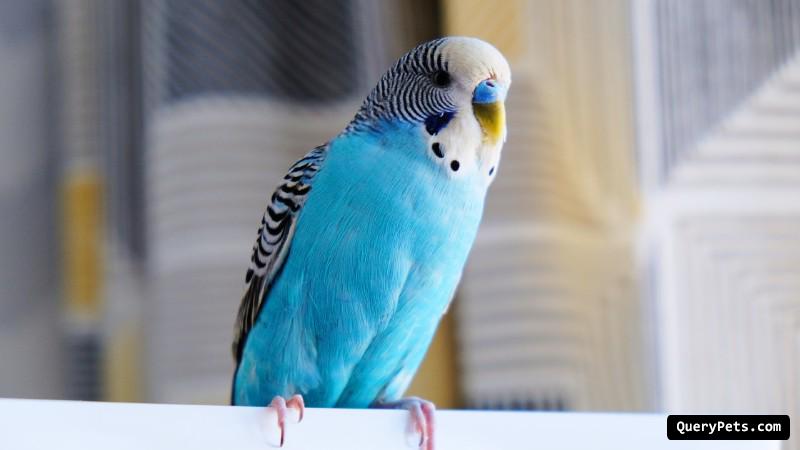Why Is My Parakeet Bobbing His Head? Parakeet Behaviors

Parakeets are small, social birds known for their lively behaviors and ability to mimic human speech. As parakeet owners know, these birds are full of quirks and idiosyncrasies, making them fascinating pets. One behavior that often puzzles new owners is head bobbing. If you have ever wondered, “Why is my parakeet bobbing his head?” this article will shed light on this unique aspect of parakeet behavior.
Why Is My Parakeet Bobbing His Head?
Head bobbing in parakeets is typically a natural behavior associated with communication, attention-seeking, mating, or an indication of hunger.
But excessive or irregular head bobbing could signal health concerns such as nervous system disorders, metabolic disorders, or injury.
This behavior should be assessed in context, considering the bird’s overall health, mood, and surroundings.
Understanding Parakeet Behavior
Basic Parakeet Body Language
Parakeets are expressive birds that use various forms of body language to communicate. They convey their feelings, needs, and responses to their environment through movements and poses.
For instance, a relaxed, content parakeet will often fluff its feathers briefly and then shake them out. A slightly opened beak could indicate readiness to play, while a wide-open beak might be a sign of aggression or fear.
A parakeet with its feathers tightly held against its body and its eyes wide open may be feeling stressed or scared.
Typical Parakeet Behaviors
Common behaviors among parakeets include singing or chattering, playing with toys, preening, and foraging for food. They are social creatures, often enjoying interaction with their human family members or other birds.
They may also show behaviors such as pacing, tapping, or scratching, which are usually signs of boredom or a lack of mental stimulation.
Understanding these behaviors is essential to assessing your parakeet’s overall health and happiness.
Why Parakeets Bob Their Heads
Communication
Parakeets frequently bob their heads as a form of communication. This behavior can be a signal to other birds or their owners. They may be expressing excitement, showing interest in something, or trying to assert their dominance.
Attention Seeking
Parakeets are social birds that crave interaction. If your bird is bobbing his head, he might be trying to get your attention. This behavior could be an invitation to play or interact.
Mating Behavior
In male parakeets, head bobbing is a typical mating behavior. They bob their heads to attract a mate, along with other behaviors like fluffing feathers, chirping, or regurgitation.
Indication of Hunger
Sometimes, a parakeet may bob its head to show it’s hungry. This is especially common in young birds, who signal their parents to feed them.
Health Concerns Related to Head Bobbing
Avian Nervous System Disorders
While head bobbing is often a natural behavior, excessive or irregular head bobbing can be a sign of nervous system disorders. These conditions may include neurological issues or the Avian Bornavirus, which can cause PDD (proventricular dilation disease).
Avian Metabolic Disorders
Avian metabolic disorders, such as hypocalcemia, may also cause excessive head bobbing in parakeets. These disorders can interfere with the proper functioning of the bird’s nervous system, leading to unusual behaviors.
Injury or Trauma
Head bobbing could be a response to injury or trauma, particularly head or neck injuries. If the behavior is accompanied by other signs of distress or illness, such as changes in eating habits, lethargy, or imbalance, it’s crucial to seek veterinary attention immediately.
When to Seek Veterinary Help
Observing Changes in Behavior
Keep a close eye on your parakeet’s behavior. Changes in regular activities or routines, such as eating habits, sleep patterns, and social interaction, could indicate a health problem.
Other Signs of Illness
Besides changes in behavior, be aware of physical signs of illness. These may include changes in droppings, weight loss, plucking feathers, or discharge from the eyes or beak.
Regular Check-ups
Regular vet check-ups are essential for detecting potential health issues early. Most experts recommend an annual examination for pet birds, although more frequent visits may be necessary for older or chronically ill parakeets.
Tips for Keeping Your Parakeet Healthy
Proper Nutrition
Ensure your parakeet has a balanced diet. This typically includes a base of high-quality bird pellets supplemented with fresh fruits and vegetables and a limited amount of seeds.
Mental Stimulation and Exercise
Parakeets need regular mental stimulation and physical exercise. Providing a variety of safe toys, allowing time out of the cage, and interacting with your bird regularly can help keep them happy and healthy.
Regular Vet Visits
Schedule regular vet visits to ensure your parakeet is in good health. A professional avian vet can offer advice tailored to your bird’s specific needs and lifestyle.
Conclusion
Understanding why parakeets bob their heads can provide valuable insight into their health, mood, and needs. While it’s usually a normal and harmless behavior, persistent or irregular head bobbing should not be ignored.
Always observe your parakeet’s behavior in context, taking note of other behaviors and potential signs of illness. With the right care, attention, and understanding, you can ensure your parakeet remains a healthy and happy member of your family.
